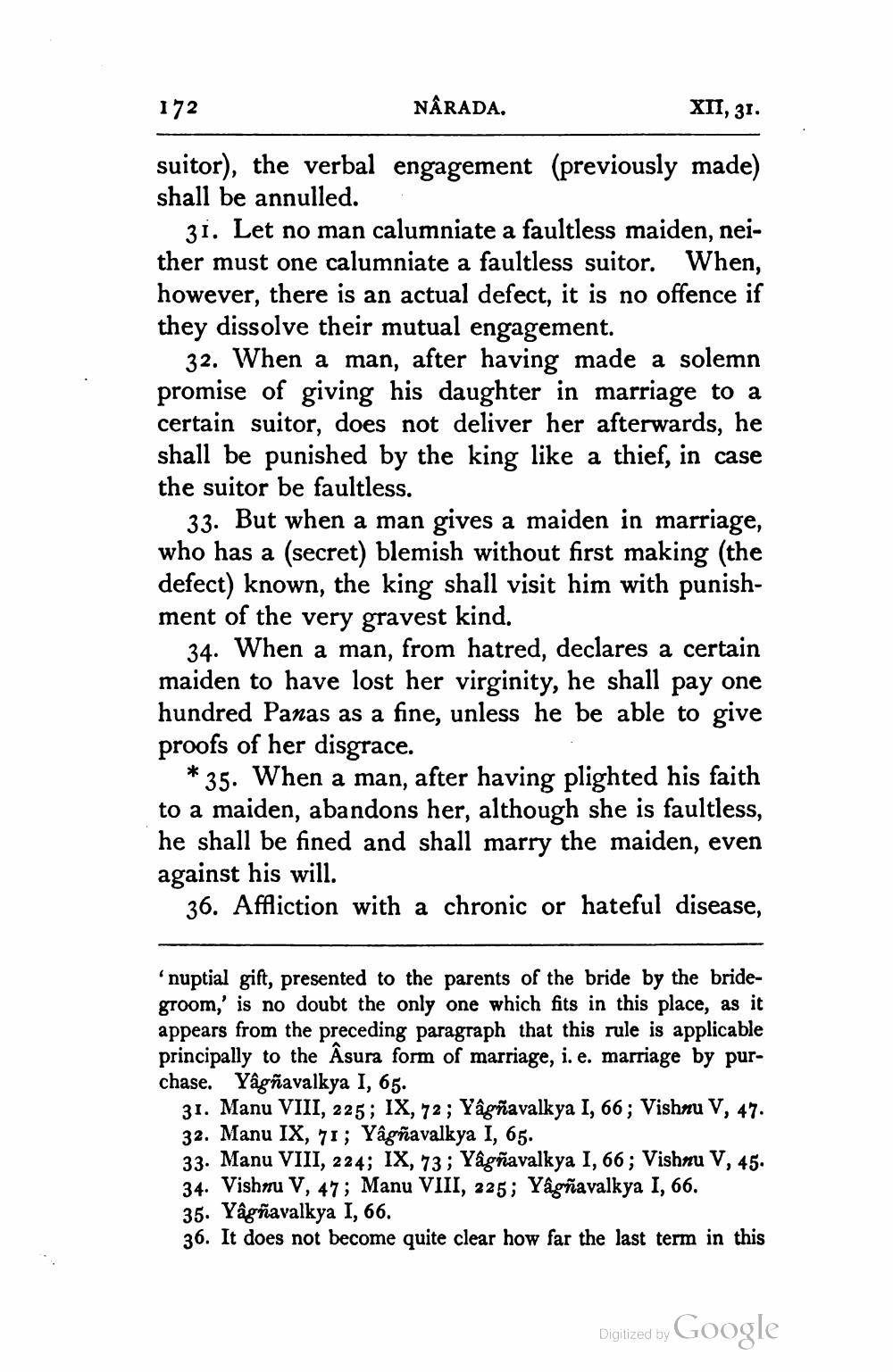________________
172
NÂRADA.
XII, 31.
suitor), the verbal engagement (previously made) shall be annulled.
3i. Let no man calumniate a faultless maiden, neither must one calumniate a faultless suitor. When, however, there is an actual defect, it is no offence if they dissolve their mutual engagement.
32. When a man, after having made a solemn promise of giving his daughter in marriage to a certain suitor, does not deliver her afterwards, he shall be punished by the king like a thief, in case the suitor be faultless.
33. But when a man gives a maiden in marriage, who has a (secret) blemish without first making (the defect) known, the king shall visit him with punishment of the very gravest kind.
34. When a man, from hatred, declares a certain maiden to have lost her virginity, he shall pay one hundred Panas as a fine, unless he be able to give proofs of her disgrace.
*35. When a man, after having plighted his faith to a maiden, abandons her, although she is faultless, he shall be fined and shall marry the maiden, even against his will.
36. Affliction with a chronic or hateful disease,
nuptial gift, presented to the parents of the bride by the bridegroom,' is no doubt the only one which fits in this place, as it appears from the preceding paragraph that this rule is applicable principally to the Asura form of marriage, i.e. marriage by purchase. Yâgñavalkya I, 65.
31. Manu VIII, 225; IX, 72; Yâgñavalkya I, 66; Vishnu V, 47. 32. Manu IX, 71; Yâgñavalkya I, 65. 33. Manu VIII, 224; IX, 73; Yâgñavalkya I, 66; Vishnu V, 45. 34. Vishnu V, 47; Manu VIII, 225; Yâgñavalkya I, 66. 35. Yâgñavalkya I, 66. 36. It does not become quite clear how far the last term in this
Digitized by Google




